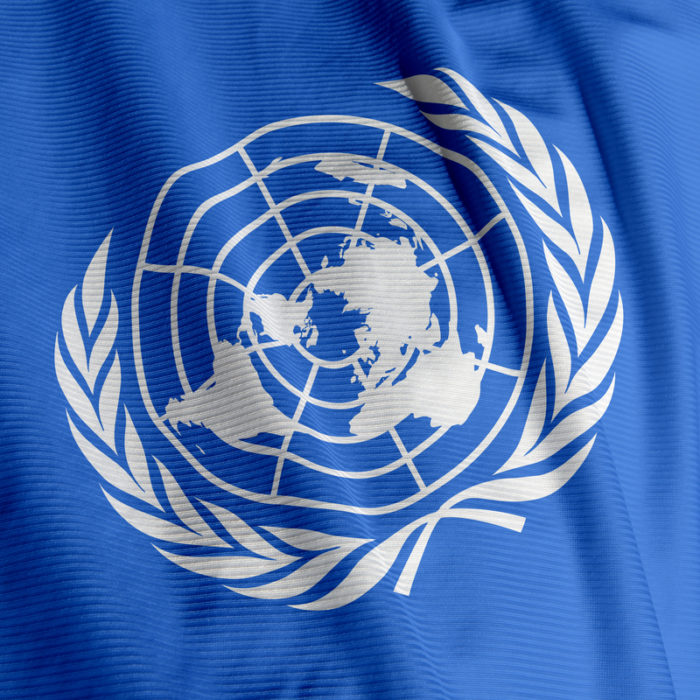 While President Donald Trump prepares to join Israelis to celebrate the release of hostages after two years of horrific Hamas captivity, the United Nations humanitarian community is preparing to immediately alleviate the unimaginable misery of Gaza’s people.
While President Donald Trump prepares to join Israelis to celebrate the release of hostages after two years of horrific Hamas captivity, the United Nations humanitarian community is preparing to immediately alleviate the unimaginable misery of Gaza’s people.
“We and our partners are prepared to move—now” to deliver food, water, medical and shelter assistance to people in Gaza, said UN chief António Guterres. “To turn this ceasefire into real progress, we need more than the silencing of the guns.”
There must also be “full, safe and sustained access for humanitarian workers and sufficient funding for recovery efforts”.
Fortunately, UN and humanitarian partners have already secured clearance from the Israeli authorities for 170,000 metric tons of food, health and nutrition supplies, shelter items and other critical aid. This is encouraging but it does not necessarily mean that Israeli soldiers will allow the aid supplies to enter Gaza quickly or easily even if a ceasefire holds.
“These supplies are currently in the region — mainly in Israel, also in the West Bank, in Jordan, Egypt and Cyprus — and they are ready to be shipped to Gaza, as partners submit more supplies for approval,” a UN spokesperson said.
The supplies will scale up local food production, malnutrition screening and treatment, restoration of essential health services, repair of the decimated water grid and a massive surge in emergency shelters, among other things.
The Israeli cabinet approved the Trump-brokered deal late on Thursday but the IDF is still awaiting orders from Prime Minister Netanyahu Benyamin to stop shooting. That would open a bombing-free 72-hour window during which Hamas must release the remaining hostages, alive and dead. Trump said he expects them to be handed over next Monday or Tuesday.
People in Gaza have welcomed the deal as have many world nations.
But UN human rights chief Volker Türk warned that peace will remain fragile without a “comprehensive process of transitional justice” to ensure accountability for gross human rights violations.
Trump expects a genuine start to lasting peace. “We reached a momentous breakthrough in the Middle East, something that people said was never going to be done. We ended the war in Gaza, and really, on a much bigger basis, created peace, and I think it’s going to be a lasting peace, hopefully, an everlasting peace, peace in the Middle East,” he said.
But the road could be long since the deal is a first tentative step in Trump’s 20-point peace plan that looks forward to rebuilding Gaza, a violence-free cohabitation between Israelis and Palestinians and eventual statehood for all Palestinians.
Trump expects to sign a formal agreement on the 20-point plan in Egypt over the weekend and be present in Israel to receive the hostages on Monday or Tuesday. He may also visit Gaza if feasible.
Advancing on the rest of the peace plan will be much trickier even if the living hostages and the remains of the dead really do come out of Gaza and Israel really does release the Palestinian prisoners demanded by Hamas.
Among them are 250 held on murder charges, including Marwan Barghouti who since 2004 is serving five cumulative life sentences plus 40 years but is widely respected in both Gaza and the West Bank as a potential leader of all Palestine.
Accomplishing other parts of the Trump’s plan will be extremely complex because they include Israeli withdrawals from Gaza, the demilitarization of Hamas and its handing over the strip’s governance to a new international entity including other Arabs from the neighborhood.
The World Bank estimates that rebuilding Gaza may cost more than $55 billion and could take as much as 20 years. Earlier, American and Israeli officials said that might require moving most Gazan’s out of the territory entirely for safety reasons during the rebuilding process.
But Trump assured on Thursday that no one will be asked to leave Gaza. That will disappoint extremists in Netanyahu’s cabinet like Bezalel Smotrich and Itamar Ben-Gvir but some Israeli analysts think the prime minister could jettison the two ministers if they create obstacles. He was wary of offending them earlier because his coalition government could collapse without their support. He may now savor the role of peacemaker and seek other coalition partners.
He might also recoil from arousing further global opprobrium against his leadership, if Trump’s peace really does get off the ground and looks like picking up speed with regional Arab and widespread international support.
He could steer clear of placing hurdles in the way of long term peace because Trump will personally sign the agreement. That makes Trump responsible in the region’s and world’s eyes to make the plan work and dismantle Netanyahu’s manipulations.
Trump seems determined not to put US taxpayer money into the rebuilding of Gaza and stabilizing Palestine, including the West Bank. He is relying very heavily on the cash-rich Gulf kingdoms of Saudi Arabia, Emirates, Bahrain, Qatar and Kuwait to put up the funds.
They will refuse if they think Trump cannot control Netanyahu or stop Israel from bombing Gaza again and further destroying the West Bank. That could trigger a wider regional war and cause severe reputational harm to Trump and the US around the world.
















